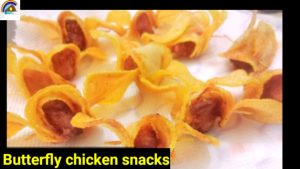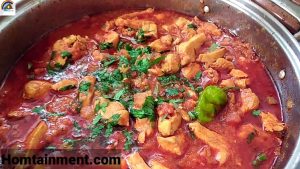Immune system boosting Foods to get healthy
The immune system is a body’s capacity to defend itself. Everything in your body protects you from harmful foreign organisms. Immune system boosting foods help strengthen this defence mechanism.
What is immune system?
In our body there are 40 trillion cells that provides
Physical barriers are like skin, internal organ linings.
- Mucosal membrane secret mucosa. This membrane act as a barrier and trap foreign agents.
- Individual cell membrane that regulates what goes in and out of the cell. Viruses and bacteria have to pass the cells to reproduce and make you sick.
- Chemical defence mechanisms include free radicals, phagocytes, secret toxic chemicals that poison foreign invaders to death.
- The detoxification mechanism involves the liver, kidney and spleen. These organs filter out foreign agents and broken out substances.
- The cell-based immune system is white blood cells(WBCs). That is what people talk about, primarily when, they talk about the immune system.
How to build the immune system?
We build the immune system by food we eat.
Whole foods consist of vitamins, minerals in their natural absorbable form. It has essential amino acids and essential fatty acids. These are resources what the body needs to work and grow effectively. By eating nutritionally dense food, you continue providing resources for your body and cells to accomplish their requirements.
Processed foods and fast food have fewer vitamins, minerals, fewer essential fatty acids and less essential Amina acids. This processing kills them on purpose get improved shelf life, taste and look.
Top 10 nutrients to boost immunity:
Vitamin A
Vitamin A is antioxidant that metabolizes fatty acids to fight colds and infections, maintain mucus membranes and maintain thymus glands. Best sources of vitamin A are liver, eggs, full-fat dairy produce, cod liver oil, oily fish.
Beta- carotenes
Beta- carotenes are precursors of Vitamin A in the body. Best sources of vitamin A are pumpkin, melon, sweet potato, carrots, apricots and green leafy vegetables. Recommended daily dosages include 4000-10000iu.
Vitamin B complex
Vitamin B complex includes vitamin B6 and B3, that help convert essential fatty acids into anti inflammatory prostaglandin. B5 is required for antibodies production and maintains white blood cells. It’s recommended daily dosage is 4000-10000 iu.
Vitamin C
Vitamin C helps absorb calcium, iron and certain amino acids; enables the body to excrete poisonous substances; increases immune response; has antihistamine properties; helps prevent anaemia; speeds up the healing process of wounds; a powerful antioxidant. We can get this vitamin in Broccoli. parsley, kiwi fruit. Citrus fruit, berries, peppers, blackcurrants. Brussels sprouts, papaya. 100 mg minimum but nutritionists recommend 1500-4000 mg.
Vitamin E
Vitamin E powerful antioxidant; helps pituitary hormone production; assists cellular regeneration; guards against pollutants; accelerates healing; inhibits carcinogens; helps antibody response to infection. Mainly we can get this vitamin in seeds,unrefined oils. wheatgerm, oatmeal.12-15 iu minimum. 200-600 iu is recommended by nutritionists.
Calcium
Calcium is vital for the bones and phagocytic cells; helps the metabolism of essential fatty acids. Calcium must be in its ionizable form to readily convert to calcium bicarbonate. The best calcium form to take by the body is calcium lactate. Dairy products, fortified soya products, nuts, seeds, tinned fish with bones and dark green vegetables. Recommended daily dose 800-1200 mg.
Magnesium
Magnesium activates metabolic enzymes; helps utilite vitamins C and E; helps convert glucose toenergy; necessary for antibody production. Nuts, seeds. green leafy vegetables, rootvegetables, egg yolks, whole grains, dried fruit. Recommended daily dose includes 350-450 mg.
Iron
Iron is vital for formation of haemoglobin and white blood cells and antibodies; relieves fatigue, prevents anaemia, promotes immune system and aids growth. Liver, red meet, eggs, whole grains, green leafy vegetables, beans, lentils, seeds, blackstrapmolasses. Recommended daily dose is 10-18 mg.
Zinc
Zinc is essential for the immune system; vital for the production of white blood cells especially the lymphocytes; metabolizes essential fatty acids; lowers histamine production, accelerates healing helps form insulin; increases overall natural immunity. Best sources include Shellfish, poultry, game, lean red med, pulses, seeds, nuts and whole grains. Recommended daily dose includes 15-40 mg.
Selenium
Selenium is a powerful antioxidant, helps in the production of antibodies. We can get this powerful nutrient from Nuts, seeds, whole grains and seafood. Recommended daily dose 50-200mg.
Phytonutrients
How to improve immunity or immune system?
You need to understand what helps to improve immunity and what destroy immunity.So that we can effectively incorporat immune boosting foods and get their full benefits.
To help immunity, you need vitamins like Vitamin C, Vitamin D, Vitamin A. These vitamins are immunity boosters and participate in the cell-based immune system. Vitamin A is the main compound mucus barriers or membranes. Besides vitamins, you need minerals too. For example, zinc is a crucial mineral in white blood cells activation.
Essential fatty acids are also vital and help modulate inflammation. They are crucial for making healthy barriers or membranes of the cells and formation of immune cells like white blood cells. Aminoglobulins or antibodies are also proteins that actively participate in the immune response.
But we must stop thinking to take drugs or pills altogether. We have to change this concept as if a little does something, then more will do better or more will do a lot. Your body needs all these nutrients in moderate quantities. Excessive amounts of these nutrients can unbalance anything else.
There are few things which hurt immunity, for example, excess sugar, excess alcohol.when smoke, we are constantly putting poison in our bodies. Our bodies don’t have nutrients for compensation of this poison. Stress is very harmful by shutting down the brain’s healthy functions and reducing immunity. Processed food deplete your body nutrients and break them down gradually. It has low nutrient content, high sugar content and high chemicals content.
In order to boost immunity you should not only work to get whole food nutrition but you have to avoid things that hurt immunity like stress and avoid processed and high sugar content food.
Immune system boosting foods list:
Here, I have selected a list of immune system boosting foods that are scientifically known for their immune system improving properties.
1# Garlic:
Garlic is best known food for its medicinal properties for hundreds of years. It is rich in compound called Allicin that is made up of sulfur. Garlic has antibacterial, antiyeast, antifungal, antimold and antibacterial yeast properties. It don’t Garlic is known for its medicinal properties for hundreds of years. It is rich in a compound called Allicin. Allicin is a product of sulfur. Garlic has antibacterial, anti-yeast, antifungal, antimold and antibacterial yeast properties. In addition to medicinal properties, it has vitamin C, zinc and calcium in small quantities. Its 100g contain 50% of your daily vitamin C, 10% zinc and 18% calcium.much nutrients but it has medicinal properties. In addition to these properties it has vitamin C, zinc and calcium. Its 100g contain 50% of your daily vitamin C, 10% zinc and 18% calcium.
2# Ginger:
Ginger has a lot of medicinal properties. It has antibacterial, antifungal especially, Candida activity. It helps in digestion, absorption of more nutrients and also helps in to have better gut flora. This gut flora participates in our immune system that helps in getting a healthy gut and healthy digestion system. It acts as an inflammation modulator.
3# Turmeric:
It’s active component is curcumin. Turmeric is popular for its antioxidant and microbial activity. It acts as inflammation modulator. Eating of ginger has the capacity to reverse the affect of stress on brain, adrenal context, cortisol etc. It helps in Gut healing, improve bile and improve biome.
4# Cod liver oil:
one tablespoon of code liver oil has 375% of daily vitamin D, 450% vitamin A, 1.035mg essential fatty acids. These essential fatty acids help in building healthy cell membrane and also act as inflammation modulator.
5# Eggs:
3 large eggs a day provides 33% daily vitamin D, 30% Vitamin A, 22%zinc, 9% calcium,and 21g complete proteins. It is insulin healthy or insulin safe because it don’t trigger insulin.
6# Bellpepper:
100g of bellpepper contain 213% Vitamin C, 104% Vitamin A, 3% zinc, 1%calcium, minerals and trace minerals. It is insulin healthy too.
7# Pumpkin seeds:
85g of Pumpkin seeds contain 88% of zinc, 5%calcium and 40% healthy fats.
8# yogurt
We add live bacteria to the milk to get this wonderful product. There is 8.5 of protein in one cup or 245g of yogurt. Protein in yogurt is either whey or casein. Casein increases your absorption of minerals like calcium and phosphorus. Whey is 20% of the protein in yogurt. It is high in branched-chain amino acids (BCAAs), such as valine, leucine, and isoleucine. These amino acids are good for building muscle tissues specially gestrointestinal tract. Milk fat is unique because it provides 400 different types of fatty acids including branched-chain fatty acids. These fatty acids have anti-inflammatory properties and is good to have healthy gut. Yogurt is an excellent source of several vitamins and minerals, such as vitamin B12, calcium, phosphorus, and Vitamin B.
9# Cinnamon
Cinnamon does have antioxidant, antibiotic, and anti-inflammatory properties. One teaspoon of ground cinnamon does include contain 0.1 gram of protein, 0.03 grams of fat, 2 grams of carbohydrates, 1 gram of fiber, 26 milligrams of calcium, 11 milligrams of potassium, 3 micrograms of beta carotene, 8 International Units of vitamin A. Vitamin A, known as a vital nutrient for vision, plays a critical role in cell growth and in maintaining healthy organs like the heart, lungs, and kidneys. It contain Iron, magnesium, Vitamin C and Calcium in small quantities.
10# Black seeds:
100g of black seeds or nigella sativa contain Potassium 1,694 mg 48%, Carbohydrate 52 g 17%, Dietary fiber 40 g 160%, Protein 16 g 32%, Vitamin C 35%, Calcium 119%, Iron 102%,
Vitamin B6 25%, Magnesium 96%.
11# Fruits:
Fruits are best for boosting immune system including Citrus fruits, Apples, pears, bananas and blue barriers. All citrus fruits specially grapefruit is one of the healthiest citrus fruits. It’s packed with vitamin C, flavonoids, potassium, fiber, phytonutrients and beta carotene which your body converts into vitamin A.That helps in vascular protection, reduce inflammation, improve gastrointestinal function and health.
Please subscribe to our YouTube Channel for more video recipes. You can find us on Twitter and Facebook.





12 comments